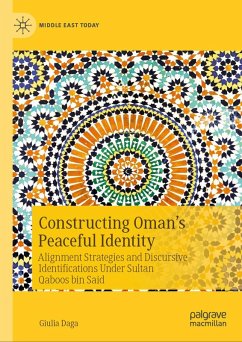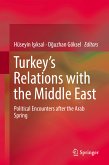With a keen focus on deconstructing essentialist understandings, the chapters delve into how discursive alignments and identity contents have shaped the government's quest for legitimacy, recognition, and status. Employing a pioneering discourse historical approach to compare the National Day speeches and UN General Assembly speeches throughout Sultan Qaboos bin Said Al Bu Saidi's reign (1970-2020), the author reveals how discourse evolved based on time, issues, and audiences.
Notably, the book situates Oman within the context of the Gulf Cooperation Council states, examining how Oman's identity and foreign policy differ from other Gulf nations. With chapters exploring Oman's foreign policy principles, its response to the historical coup and Dhofar Revolution, and its interactions with the Arab world and the international community, readers of this book will gain a comprehensive understanding of Oman's evolving identity and the dynamic nature of its foreign policy.
Challenging prevailing narratives while providing a fresh perspective on Oman's foreign policy and identity, this book marks an important text for scholars as well as policymakers and anyone interested in understanding the intricate dynamics of Oman's role in the global stage.
Dr. Giulia Daga is a research fellow on the Gulf and the Middle East at the IAI (Istituto Affari Internazionali) and an adjunct lecturer in international relations of the Middle East. She received her Ph.D at the School of International Studies of the University of Trento in July 2023. During her doctoral program, she spent visiting time atthe Sultan Qaboos University (Oman) and the LSE Middle East Centre (UK). Her main research interests include International Relations, History and Politics of Oman and the Arabian Peninsula; Maritime Strategy; Identity and Discourse Studies.
Dieser Download kann aus rechtlichen Gründen nur mit Rechnungsadresse in A, B, BG, CY, CZ, D, DK, EW, E, FIN, F, GR, HR, H, IRL, I, LT, L, LR, M, NL, PL, P, R, S, SLO, SK ausgeliefert werden.









